SUMMARY
This is AI generated summarization, which may have errors. For context, always refer to the full article.
![[OPINION] Should we believe a woman when she says she was raped?](https://www.rappler.com/tachyon/2022/03/TikTok-A-new-space-for-coming-out-about-sexual-abuse.jpg)
Trigger warning: This article talks about rape, sexual abuse, sexual harassment, and trauma.
TikTok: A new space for ‘coming out’ about sexual abuse
TikTok is an online platform that allows users to create short videos for entertainment like skits, dances, dubs, and vlogs. In the Philippines, it became more popular among different ages at the height of the pandemic, when everyone had more time to spare while quarantined.
While this social media platform is more known for its fun side, it has become an avenue for people to vent and talk about their experiences of being sexually abused or sexually harassed. Some users anonymously talk about their experiences, and some choose to bare their identity. Whichever approach is used, the platform provides them with a safe space and emotional support. However, not everyone who decides to come out receives concern and support; some victim-survivors encounter victim-blaming and skepticism.
One content creator I came across on Tiktok openly talks about her experience of being groomed by a man who was already 28 years old when she was pursued by him at 16. As implied by her videos, the man was her tutor when she was still in high school. Her instincts knew that there was something wrong with the “relationship.” Eventually, she found the strength to leave. Now, that she is in her mid-30s, she chose the path of social media to open up about her experience of sexual abuse and the trauma it gave her.
Unlike other victim-survivors who receive sympathy for courageously speaking out, her story was received with judgment. People would drop comments that cast doubt on her integrity as a victim-survivor, whether the nature of their relationship was consensual or not. She thinks that the reason why her narrative was not believed is due to her persona of not perfectly embodying the ideal image of a victim based on society’s norms.
Despite the power relations that played out during their “relationship” and her being a minor when it happened, these realities were irrelevant to the curious onlookers because they were more focused on her being an “unconventional” woman. This means that the public seems to have a normative image of victim-survivors of sexual abuse. Often, people think that only women who are more on the conservative side can be sexually abused or sexually harassed.
The myth behind rape and sexual harassment
Dr. Sylvia Claudio, Dean of the College of Social Work and Community Development at the University of the Philippines Diliman, talks about rape in her book And Then She Laughed. One of the myths that she cites about rape in the book is that only morally upright women can be raped because of society’s association between morality and virginity. This points out that women with loose morals are assumed to be lying when they say that they were raped with the assumption that they “wanted it anyway.” In connection, claims of women who display provocative demeanors are not usually believed by authorities. Their narratives are often scrutinized with prejudice. These absurd and simplistic stereotypes sideline the accounts of those who do not satisfy the “perfect” image of a victim-survivor; hence, the elusiveness of justice for them.
Sex workers’ nature of work does not represent the preconceived image of a victim-survivor. Because of this, when they report abusive clients, they are not believed by authorities. This misconception is centered on the notion that sex workers cannot be raped because of their work. People would ask, “What boundaries do you violate when they give access to their bodies?” Thus, justice is not attained by most sex workers.
In line with this lamentable reasoning, an article published by Time in 2016 says that sex workers feel that they were left out of the #MeToo movement. The #MeToo movement is an online movement (which eventually became more localized and diversified) that aims to fight against sexual abuse and sexual harassment. It has mobilized all sexes from different races, social classes, industries, and sectors to decry systems and agents that perpetuate sexual abuse and sexual harassment. However, sex workers were alienated by this movement because the public, and even some participants of the movement, think that their experience is not reflective of what the movement advocates.
Society’s exclusion of the wide spectrum of victim-survivors prevents the movement to amplify itself in the right direction. The movement is a worthy cause, but if one sector is left behind, it cannot completely brandish a complete picture of the fight of victim-survivors against the true enemy.
Anti-Rape Law of 1997 redefines rape
Republic Act No. 8353 otherwise known as the Anti-Rape Law of 1997 presents a developed definition of rape which is now “a crime against persons” from “a crime against chastity” as stated in the Revised Penal Code. This transformative redefinition of the term ascertains that the purity, virginity, or morality of victim-survivors of rape is irrelevant in the case. Thus, sex workers, trafficked women (or even men), and people with an active sexual life can be raped as explained by Philippine Commission on Women (PCW). This legal framework solidifies that rape is a crime against the dignity and well-being of the victim-survivor. Furthermore, sexual abuse is an act of violence and display of power, perpetuated by choice, and nothing about the moral character of the victim-survivor could justify it.
To believe them or not?
It may be true that there are signs that professionals can surmise when assessing behaviors that attribute to the trauma that victim-survivors suffer. However, there is no fixed or exact mold for how a victim-survivor looks and behaves.
Judging the narratives of victim-survivors as false based on their moral character and outward characteristics does not concur with what the law says. From a legal perspective, the Maria Clara doctrine, otherwise known as the Woman’s Honor, is a legal principle used by Philippine courts that presumes that women, particularly Filipinos, would not risk their honor in admitting that they have been abused unless the abuse had happened. This legal tenet contextualizes the social stake that comes with disclosing to others, more so to the public, their experience of abuse. But this doctrine was at one point not followed by the Supreme Court. The ruling on the case of People v. Amarela, 2018, when the defendants, Amarela and Racho, were acquitted of the charge of rape on the ground of reasonable doubt. The Supreme Court elucidates why the unusual decision was made:
“And while the factual setting back then would have been appropriate to say it is natural for a woman to be reluctant in disclosing a sexual assault; today, we simply cannot be stuck to the Maria Clara stereotype of a demure and reserved Filipino woman. We should stay away from such mindset and accept the realities of a woman’s dynamic role in society today; she who has over the years transformed into a strong and confidently intelligent and beautiful person, willing to fight for her rights.”
Thus, in this case, the Supreme Court veered away from stereotyping the Filipino woman and allowed the rule of consistency of statements and presence of evidence to prevail. As a rule of thumb, the evidence required in any criminal case, including rape cases, should be proof beyond reasonable doubt. However, it is necessary to note that the Supreme Court has not abandoned the Maria Clara doctrine. This doctrine could only be abandoned or reversed when the Supreme Court is sitting en banc.
From a feminist point of view, this doctrine is still relevant. The Maria Clara identity of the Filipino woman may have changed over the years, as explained by the Supreme Court, but society has not. Philippine society is still patriarchal in many ways. The strong patriarchy in our society makes it hard for victim-survivors to testify in court. Thus, in the eyes of the law, this doctrine upholds a preferential option for women victim-survivors.
Court rulings, which carry out justice, operate on evidentiary procedures. Careful investigations and cross-examinations are indeed necessary to provide a verdict on one’s innocence or the lack thereof. However, we, as family members, relatives, friends, colleagues, or simply online followers of victim-survivors are not in a legal position to decide if their claims are true or not. We should understand that even if we are not the ones who carry out legal justice, we are in a privileged position of holding space for victim-survivors who allow us into that part of their personal history. Therefore, let us make their load less burdensome. Not believing them will do more harm than good.
Doubting them and questioning the truthfulness of their accounts would result in mistrusting themselves and invalidating their feelings. Hence, indirectly accepting the narrative of the perpetrator. As suggested by Dr. Claudio, the moment someone tells us that they were raped or abused, we must believe them. She explains in her book how our acceptance of the victim survivors’ truth can be an empowering response.
“[W]omen are disbelieved and silenced. This is very hurtful and disempowering. It is often the reason rapists and molesters are not brought to justice. The first step therefore towards empowerment and healing is to listen, to value her voice and experience AND TO BELIEVE.”
Believing them and their narratives constitutes a higher law, which is love — grounded in understanding, compassion, and empathy. When we believe them, it is enough to propel the possibility of their inner healing, even if justice may take time, even if justice was not achieved, and even if justice will not be pursued by the victim-survivor. – Rappler.com
Gaizel Arguelles Adan is an educator and women and children’s’ rights advocate.
Add a comment
How does this make you feel?
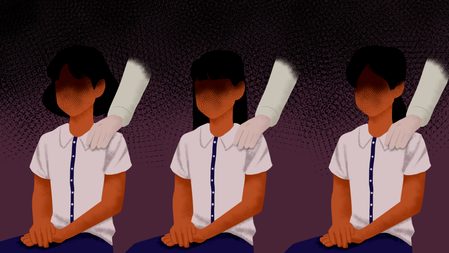
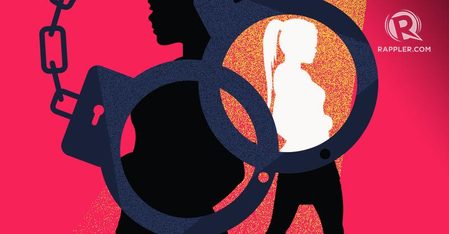




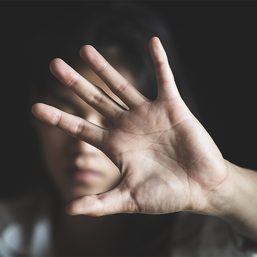
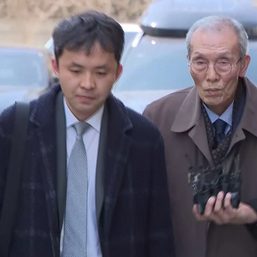

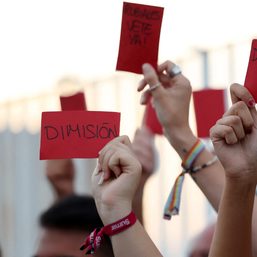


![[OPINION] Unpaid care work by women is a public concern](https://www.rappler.com/tachyon/2024/07/20240725-unpaid-care-work-public-concern.jpg?resize=257%2C257&crop_strategy=attention)









There are no comments yet. Add your comment to start the conversation.